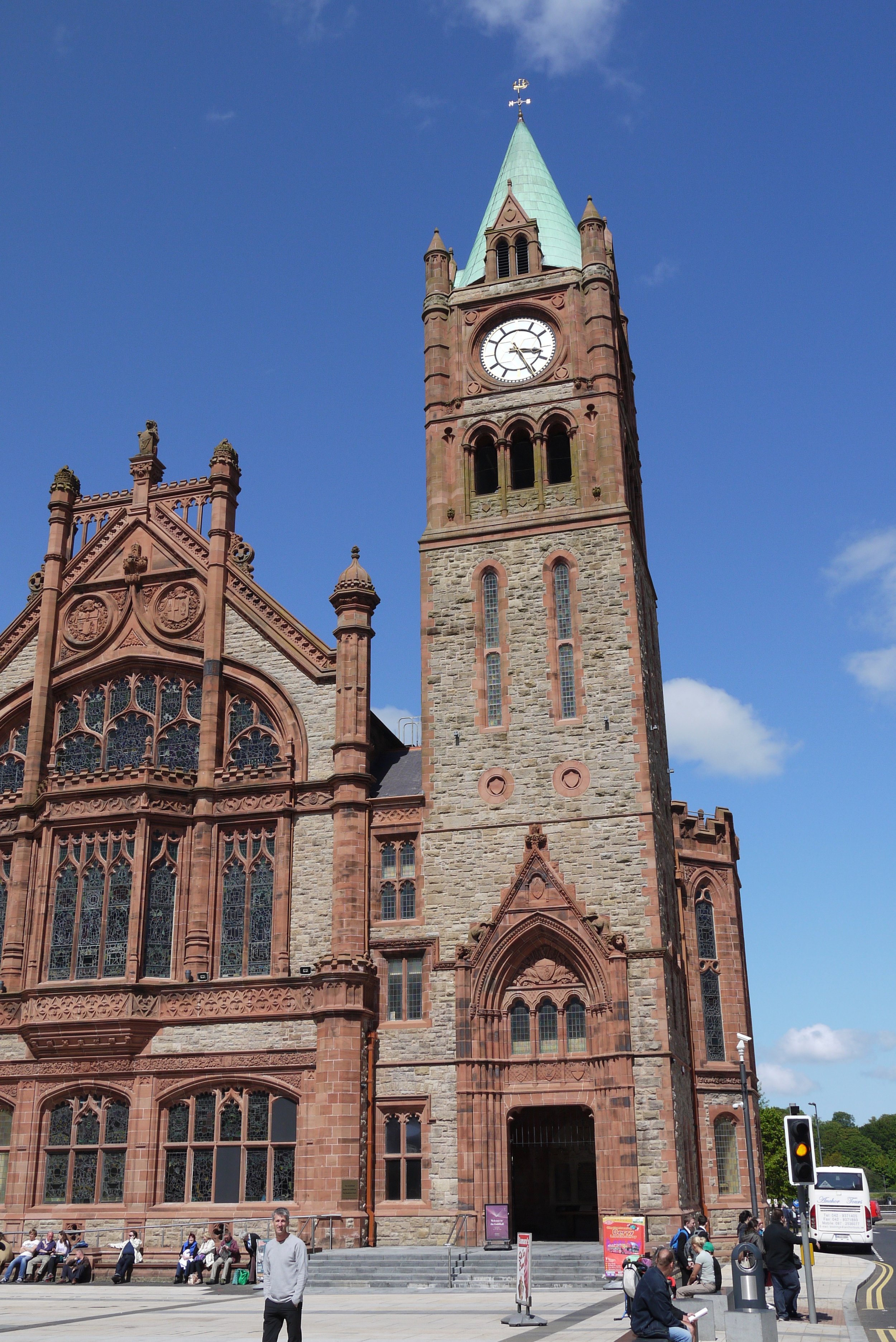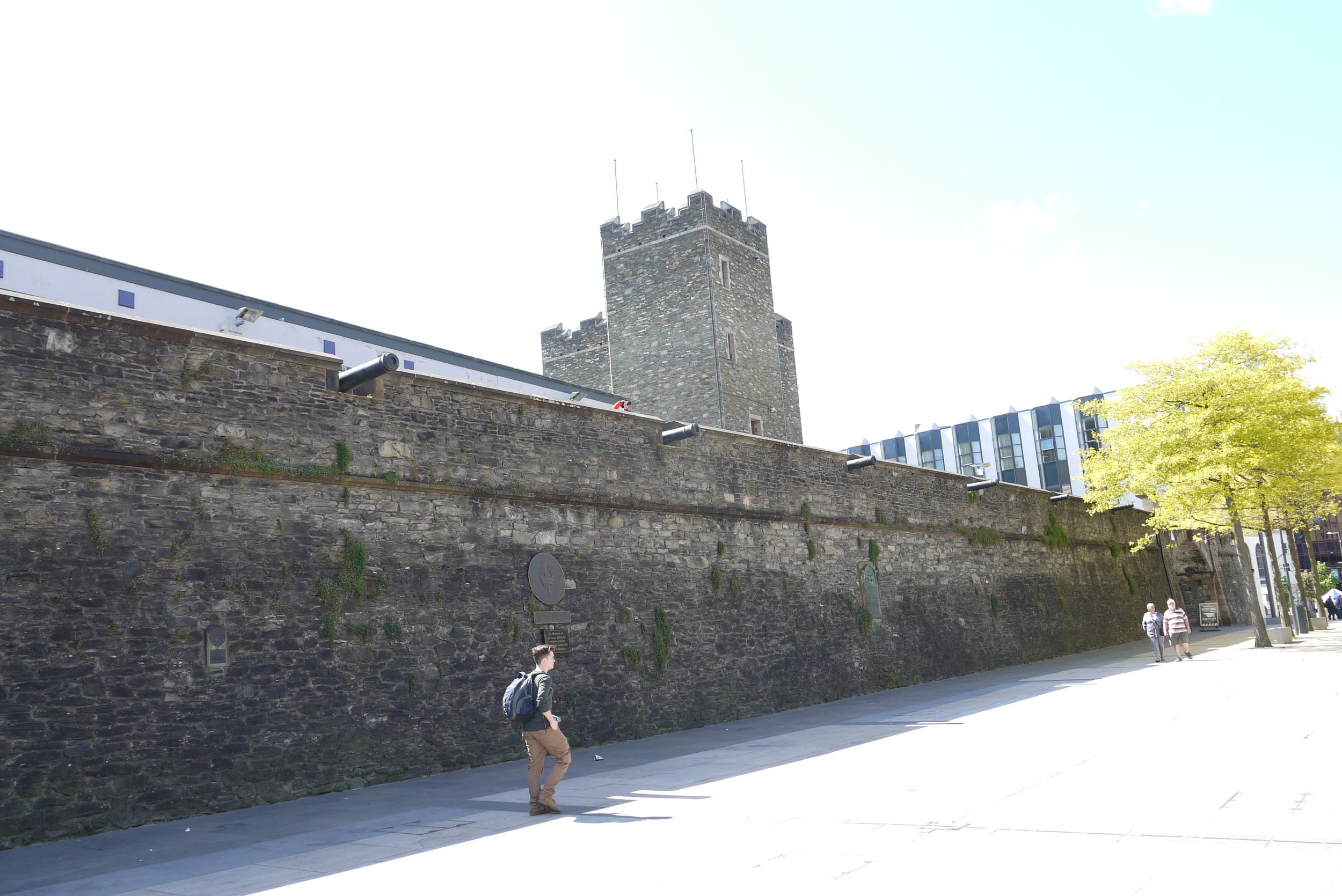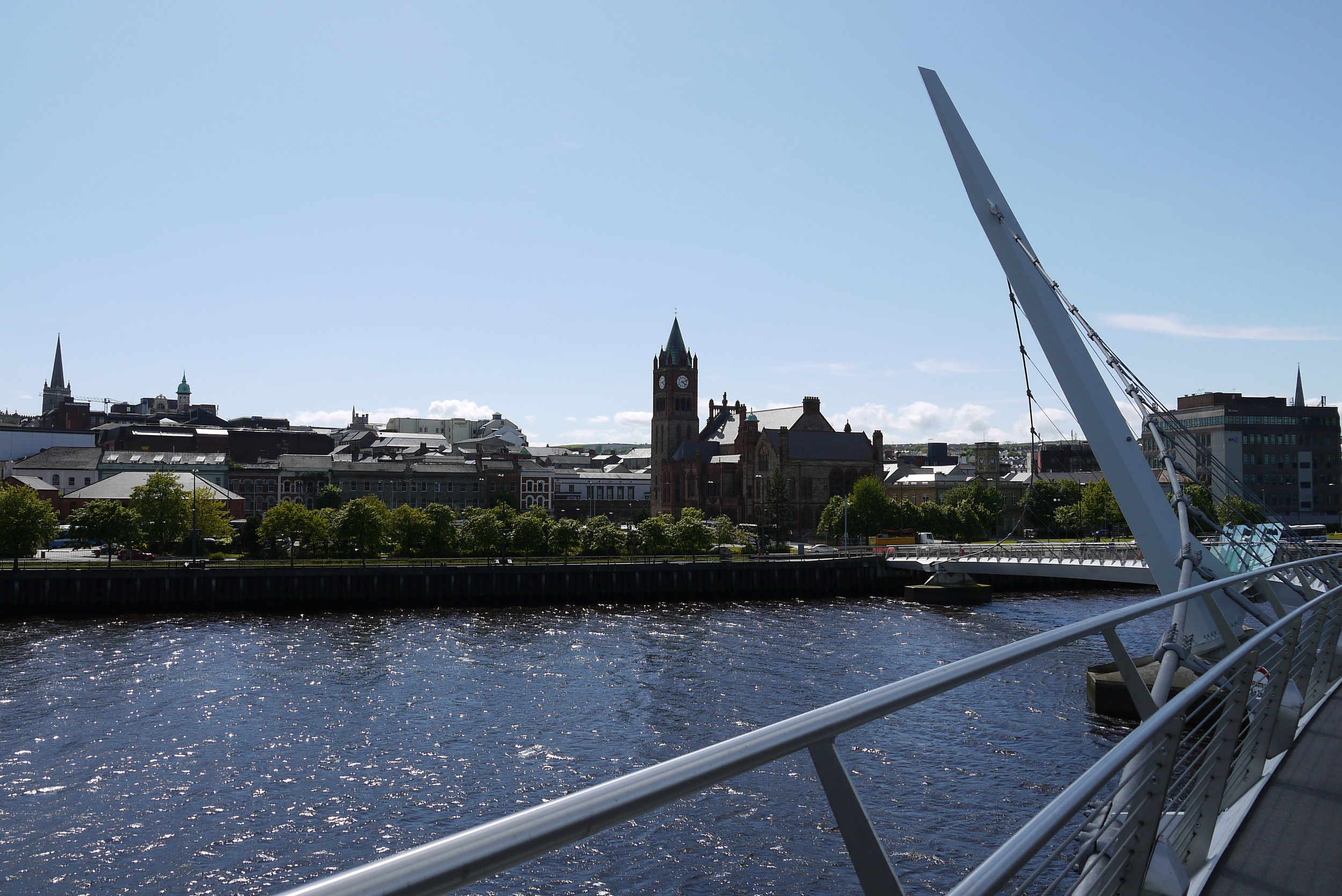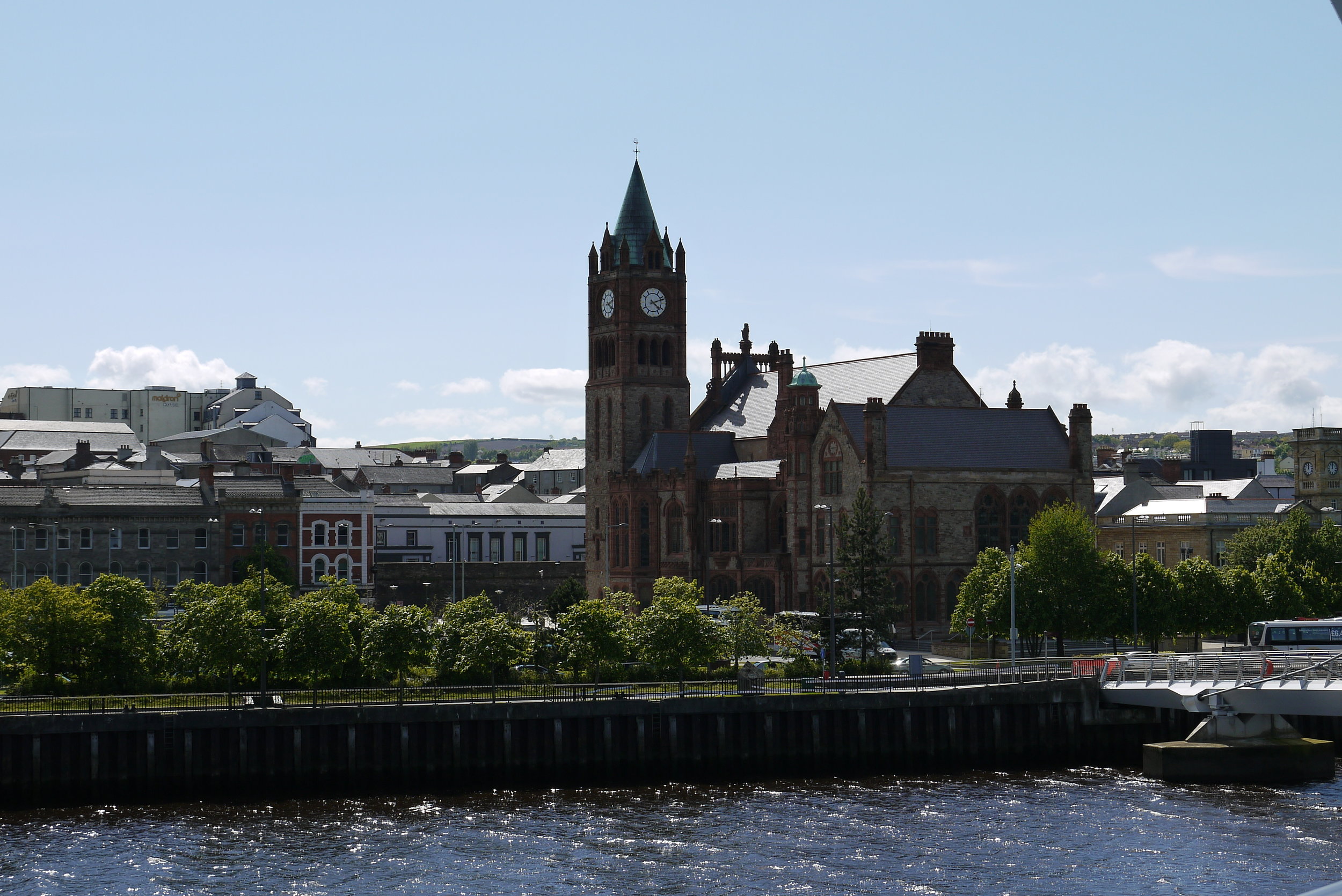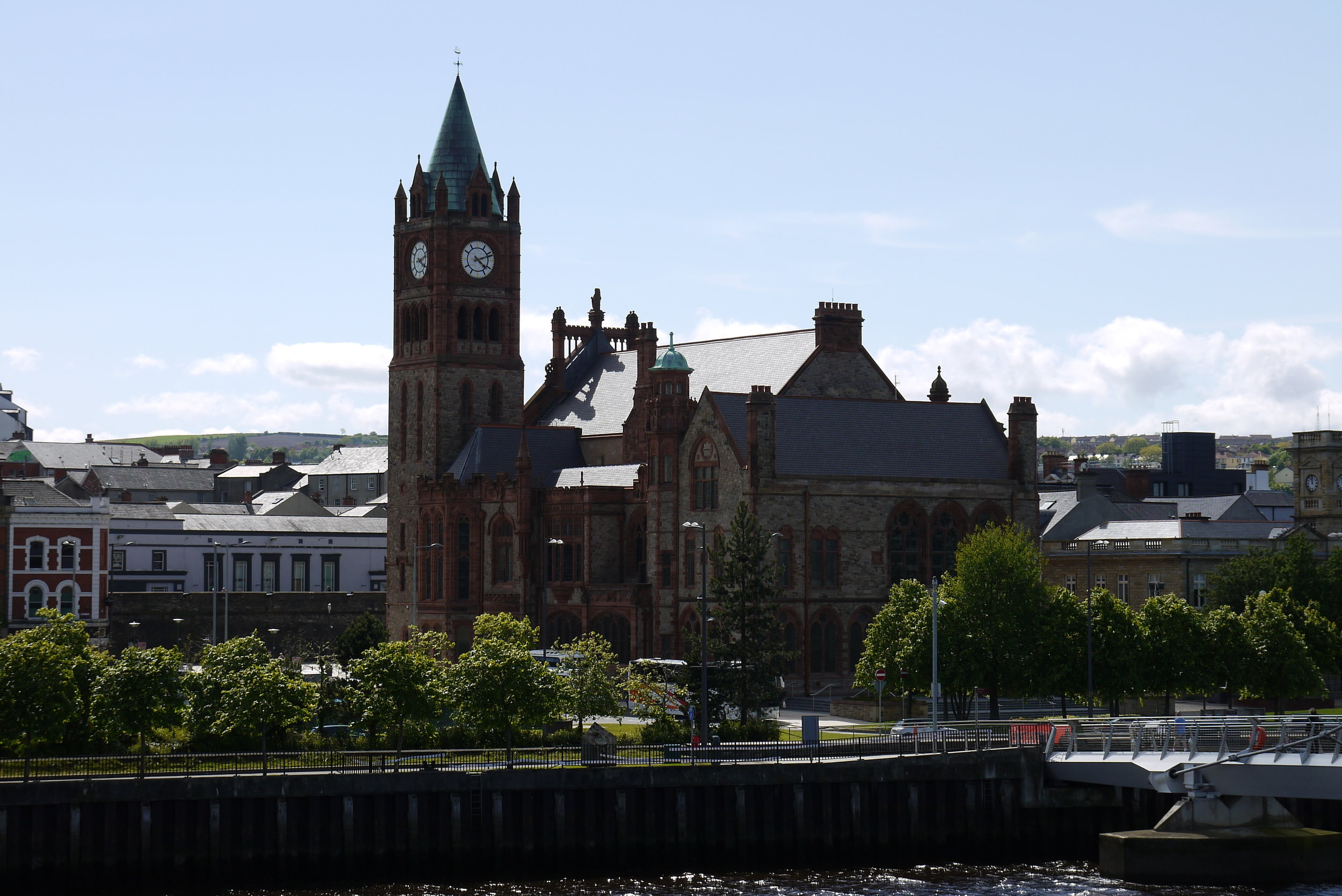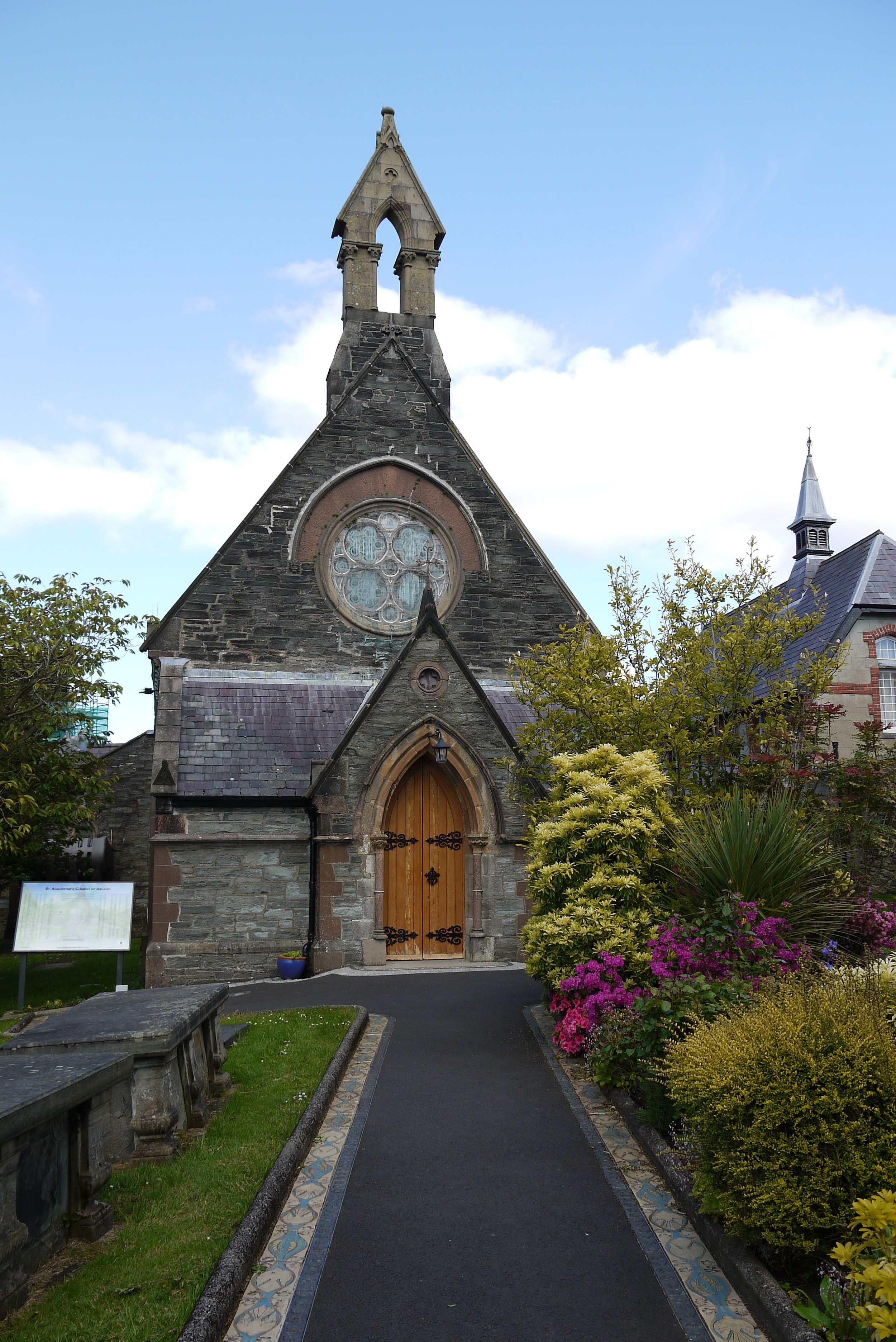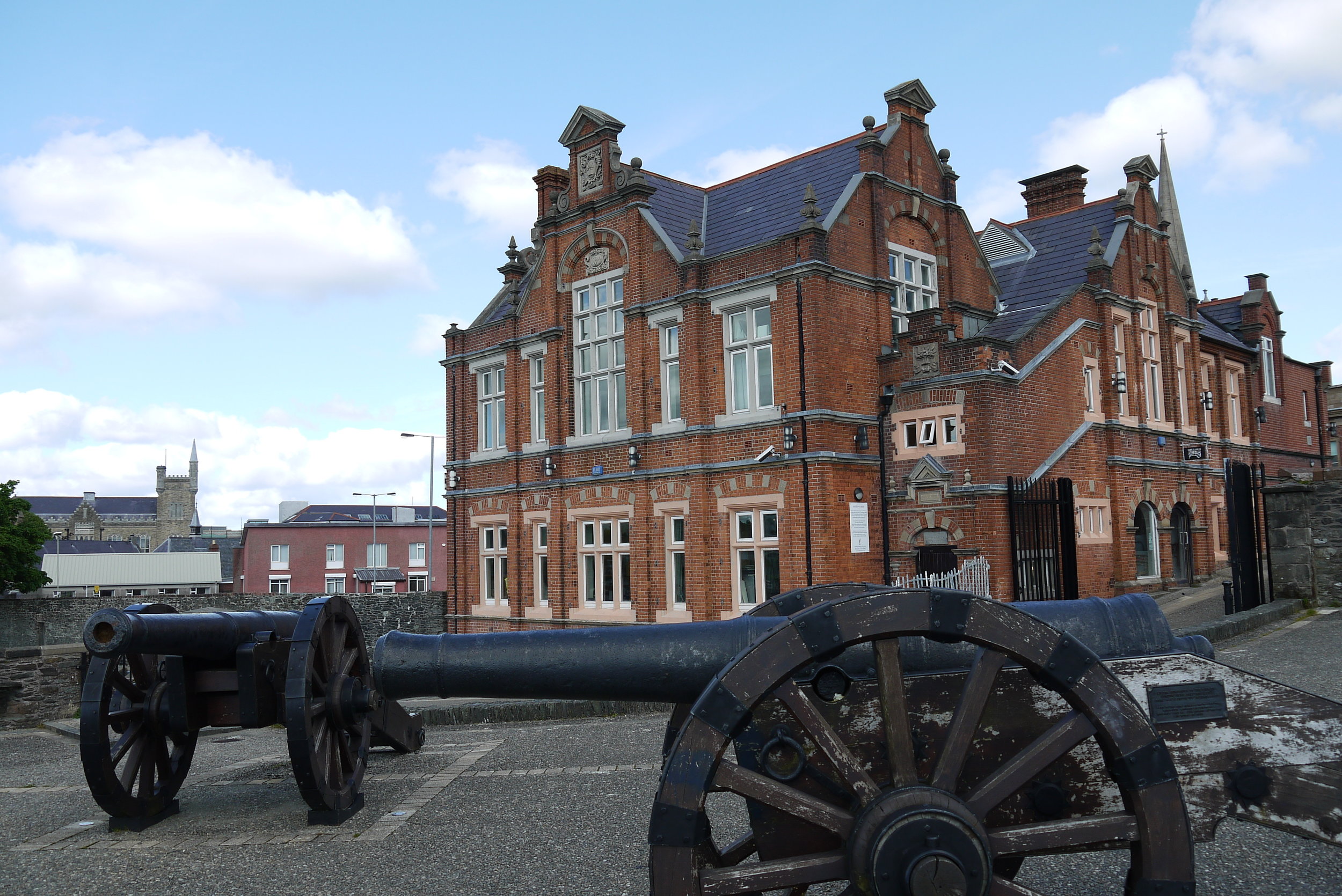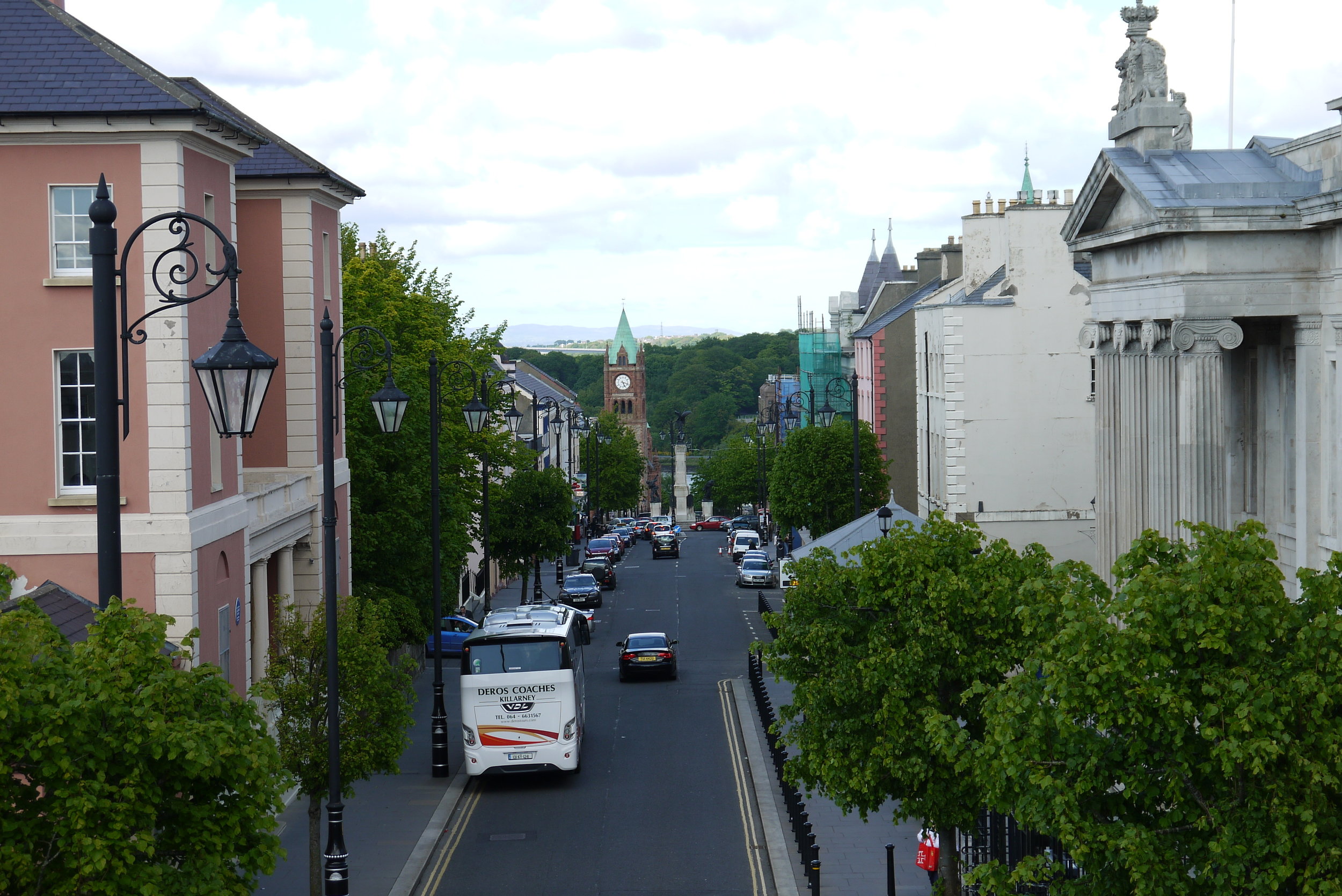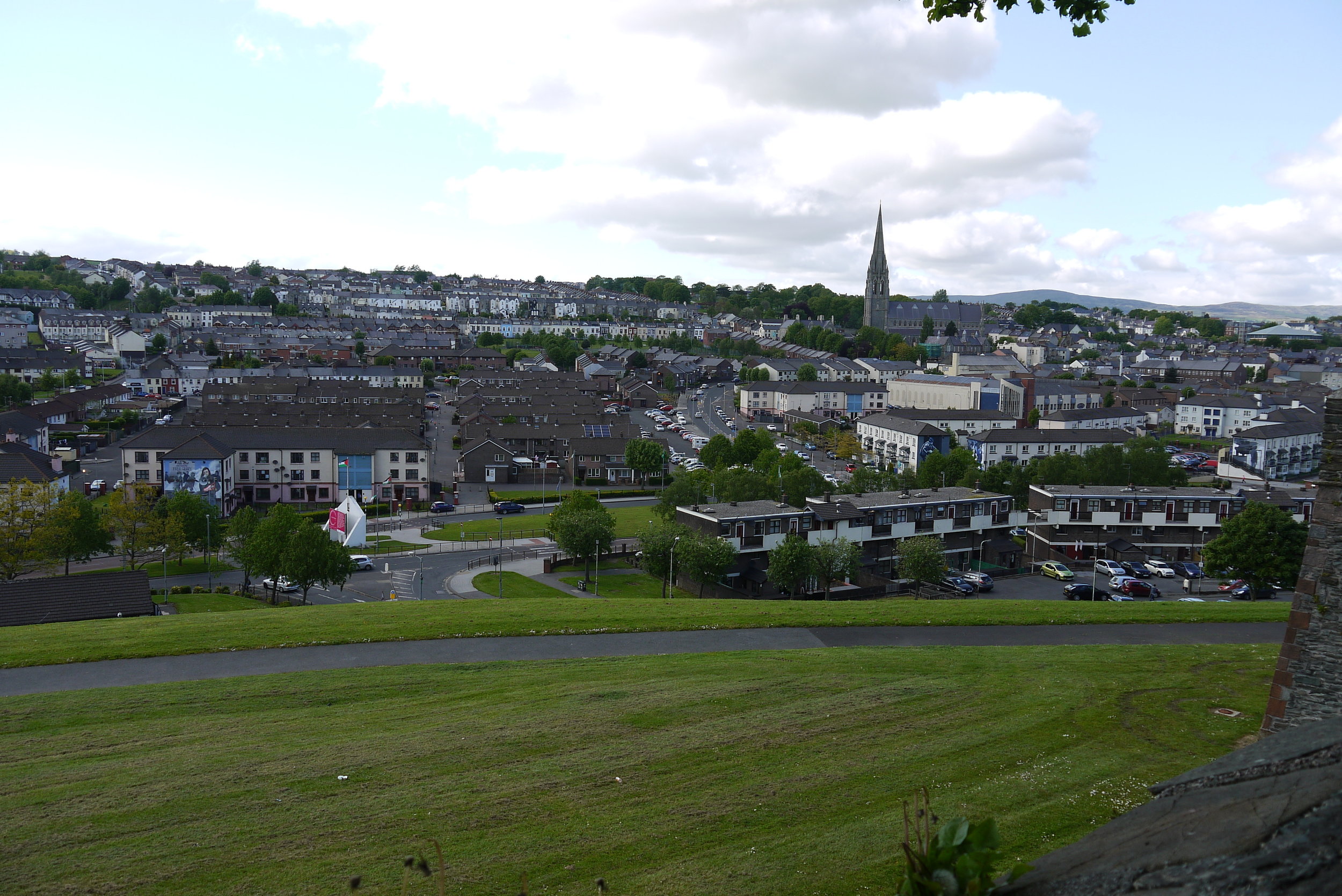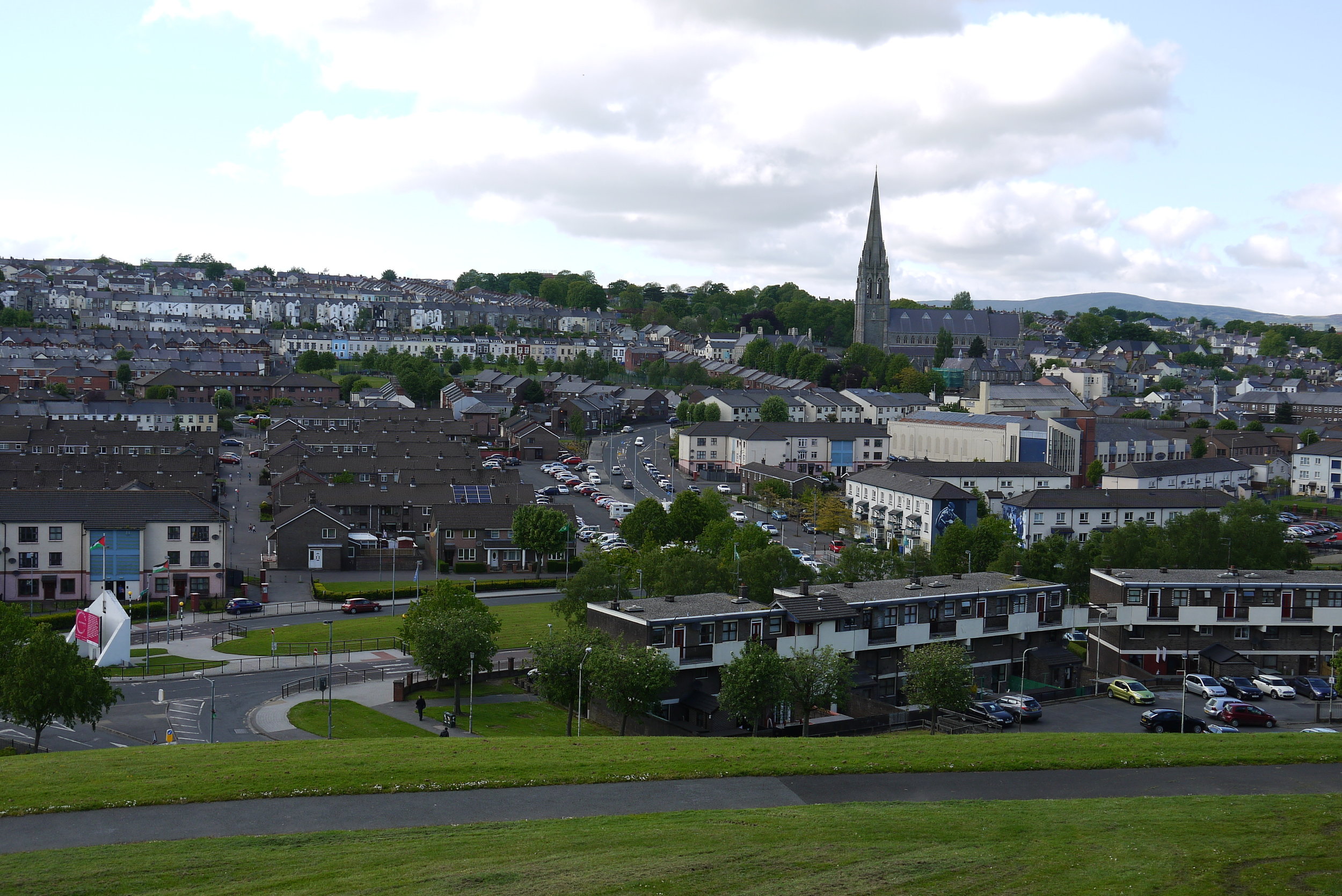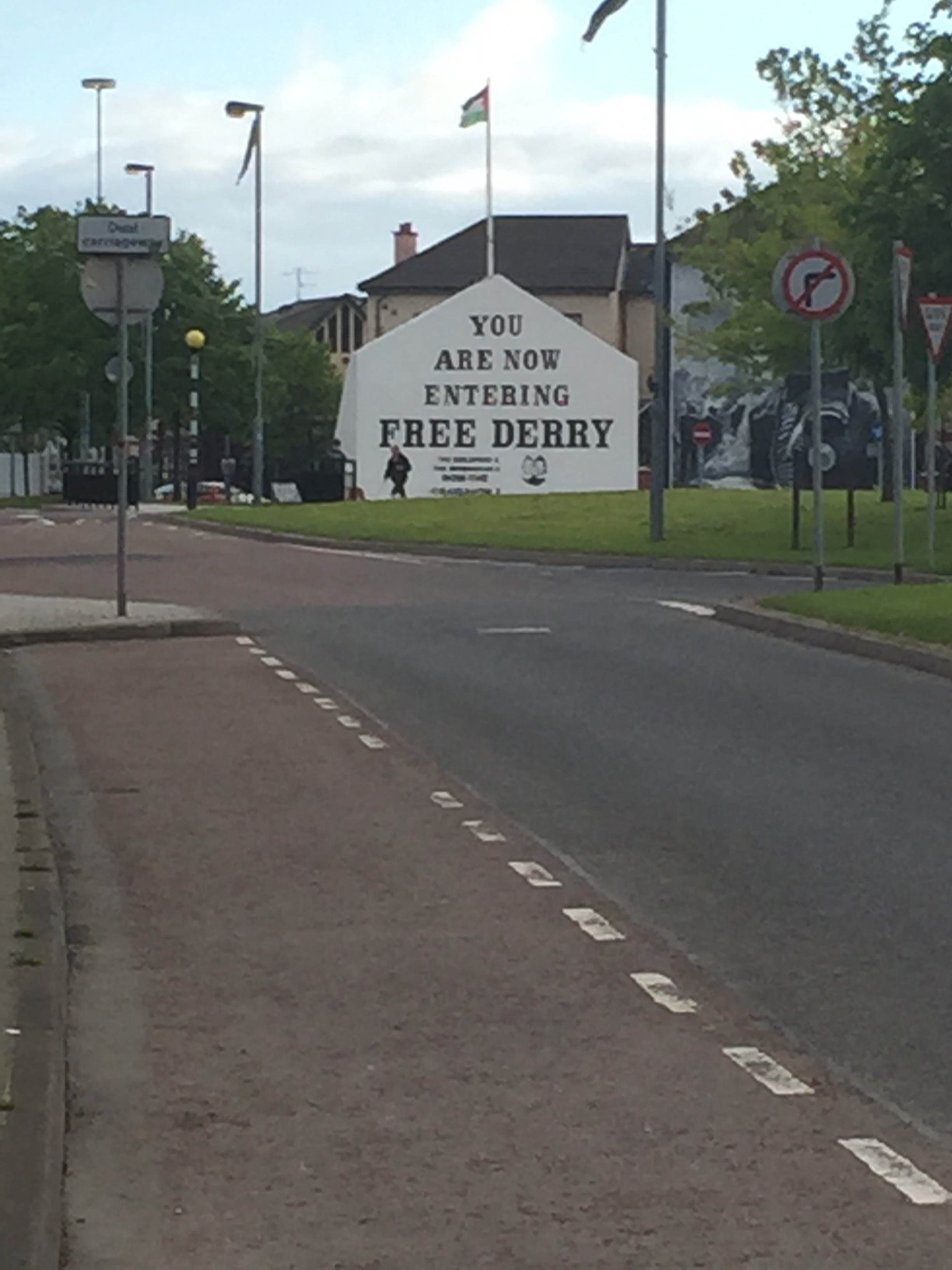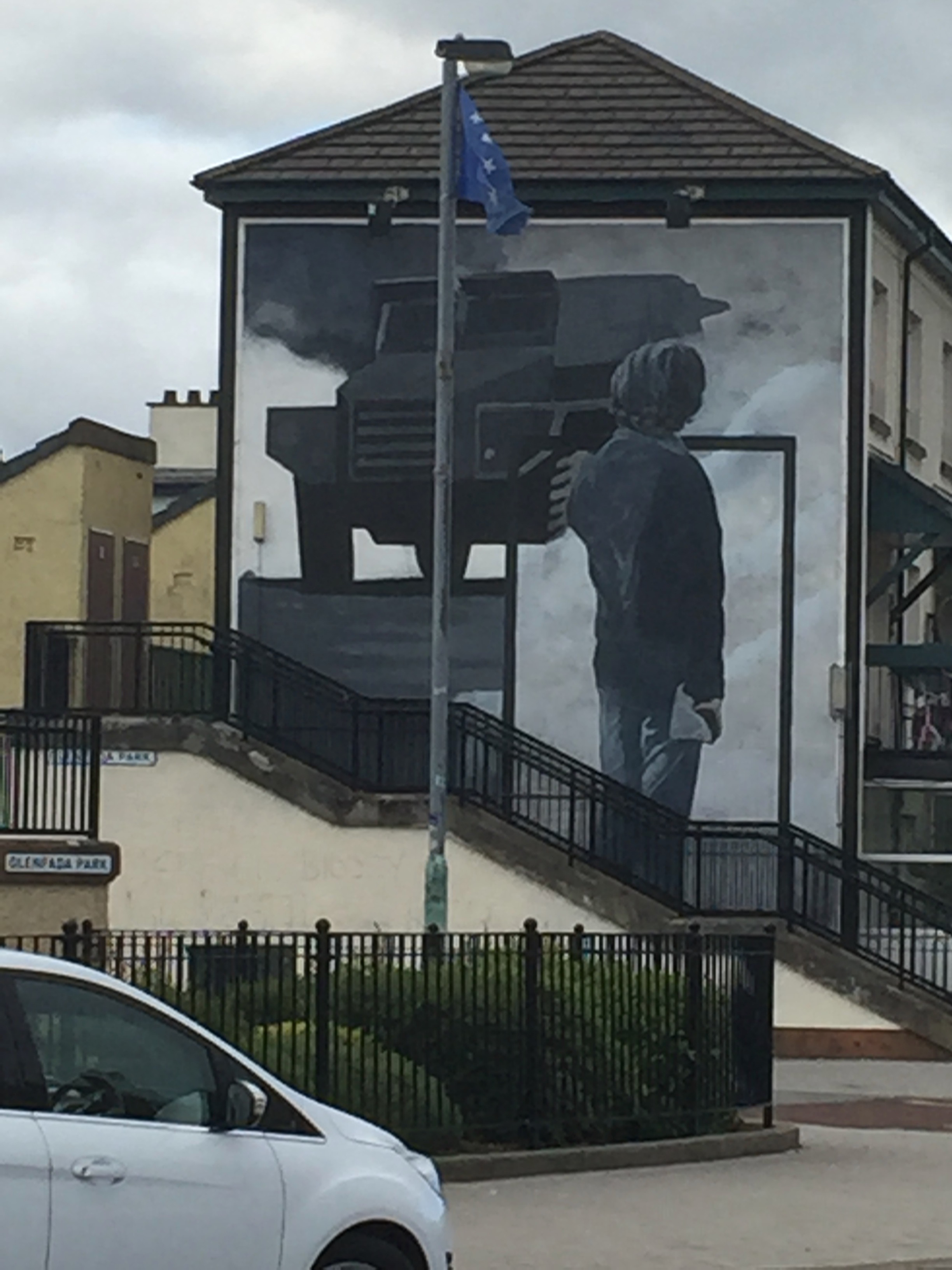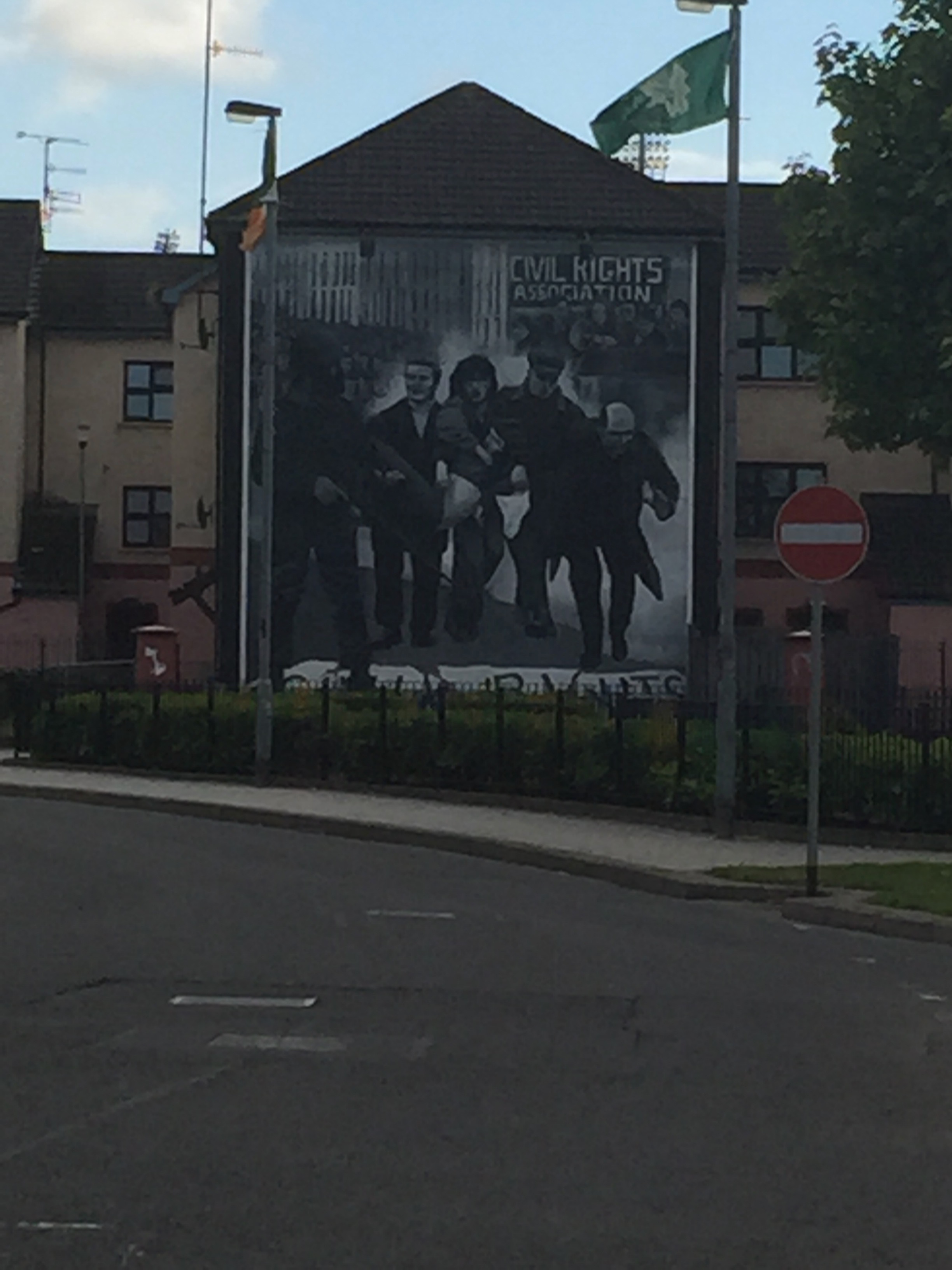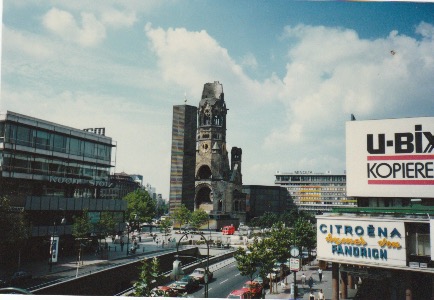connecting with locals in derry

I was born in the late 60's, so growing up in Ohio, I had a vague sense that there was some sort of dispute going on between Protestants and Catholics in Northern Ireland, just from things I'd see on the news. I didn't understand the context. It was just fighting, and it didn't make much sense to me. My midwestern family was Protestant, and we knew lots of people who were Catholic, and we all seemed to get along just fine. Whatever was the problem in Northern Ireland?
Obviously, I was too young to understand the complexities of politics, religion, civil rights, oppression and protest.
But, here's what I learned, forty-or-so years later. Back in the 70's when I was growing up in the suburbs of a large midwestern city, kids my age in Derry were growing up in a war zone. I might have seen it on the news when I was a small child, and in my adolescence and young adulthood, I may have understood it slightly better, but I didn't really, really understand until a friend took me to Derry to visit his family.
Ireland is beautiful, and this part of Ireland--where Northern Ireland meets Donegal--is especially gorgeous. Derry is the only remaining fully-intact walled city in Ireland (north or south), and the main city square has the gorgeous Derry Guildhall as its showpiece. There are exhibits on history in the Guildhall, which provide fascinating information about the city and the surrounding area but walk across Guildhall Square and around the corner, and you'll get a very different perspective on Derry's not-so-distant history.
The Museum of Free Derry focuses on the civil rights movement in the 1960's and 70's, and the riots and protests known as "The Troubles." You'll learn that Guildhall Square was the site of many protests and riots during The Troubles, and that the gorgeous Guildhall was damaged by bombs in the 1970's, during the protests. You'll learn about the Bloody Sunday Massacre, where British soldiers shot dozens of unarmed civilians. And you just might meet someone who has a very personal connection to those events.
When we walked into the Museum of Free Derry, we were greeted at the desk by the staff person who collected our admission fee and gave us our ticket. He was chatting with a friend who just happened to be hanging out there. If you've been to Ireland, you're already familiar with what happened next. It's easy to start up conversations with strangers in Ireland, and even easier to get pulled into someone else's conversation. It's just the Irish way. The guy who was visiting started talking about his brother, and we quickly learned that his brother had been killed during the Bloody Sunday Massacre. That friendly and very personal conversation with a stranger about events that happened more than forty years earlier informed our visit to that museum--and the rest of our walking tour around Derry--in a very different way.
"The Troubles" sounds like such a minor thing. Like, "Well, we're concerned, of course." That's not the case. The Troubles were brutal, and after our visit to the Museum of Free Derry, my friend invited us to walk around the wall of the city with his cousin, John, who was a lifelong (Catholic) resident of Derry. Talking to my friend and his cousin, I really started to understand what happened in Northern Ireland -- how Catholics and Protestants were segregated and Catholics were moved out of neighborhoods in the central part of the city. And how to this day (!), there are still segregated neighborhoods in the center of the city that exist behind walls or fences. John pointed out the Bogside and Creggan (both Catholic) neighborhoods from our vantage point on the wall of the city. He told us about growing up in the 70's surrounded by The Troubles. Then we came down from the wall, and passed by a gated community-- or more specifically a gated and walled community where Protestants lived during the troubles, and where they still live today. Those walls went up so that rioters couldn't get in. But decades later, the walls still stand even though the gates aren't locked. It felt weird and forbidden to pass through them.
"Can we even go in there?" I asked.
"I guess so, they're not locked." John sounded really tentative.
So, we walked through the gates, feeling a little like we were breaking and entering. Behind the wall and gates, there were middle-class townhomes. Gardens. A playground. As we quietly walked through the walled-off neighborhood at the foot of the wall, John remarked, "You know, I've never actually been in here, before."
From Derry, you might find yourself heading along the northern coast to the spectacular Giant's Causeway. Or you might drive in the other direction to County Donegal, and the spectacular landscape of the Wild western coast of Ireland. But if you find yourself in Derry, spend some time connecting with the locals and ask them about their personal history. It's as easy as finding a pub in Creggan and chatting up the folks at the next barstool.
Planning a trip to Northern Ireland? There's a lot to see and do, and Huckleberry Travel can help you put together an itinerary that will make it unforgettable. Let us know what you'd like to see and do in Ireland, and we'll start booking your trip-of-a-lifetime.
Want to take an incredible trip? Huckleberry Travel can put together the trip of a lifetime that includes tons of unique experiences you might otherwise miss. Contact us for more information about our travel consultation services.

